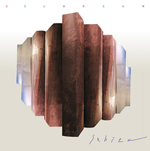|
|
 |
Dusted Reviews
Artist: Delorean Album: Subiza Label: True Panther Review date: Jun. 10, 2010 |

|
|
|
 |
The four Spanish guys who make up Delorean have decided to title their current album Subiza despite burning themselves on the implied pun. The group has indeed developed a kind of opportunistic, "sub-Ibiza" take on laidback house music. Their easy breezy sound incorporates some salient dance music elements, but the appearance of chugging house piano or ravey synths is just window dressing on traditionally structured, verse-chorus pop songs that don’t last long enough to stretch out their limbs or earn the pitched emotion they’re trying to sell. Subiza is a kind of post-Merriweather Post Pavilion take on Sweden’s The Tough Alliance, with overplayed earnestness and emotional maturity subbing for the duo’s self-aware humor and calculated, "situationist" antagonism. The band gets traction by cherry-picking formerly taboo symbols of non-rock music beyond dance, too: the pitched-up vocal lines that unintelligibly wend their way through "Stay Close" or "Simple Graces" recall the Pygmy singing sampled by Deep Forest circa 1992 as much as millennial hip-hop.
Like a lot of other dance rock, Subiza appeals to an audience used to informally performing the kinds of tasks that used to be the province of hack music critics and crate diggers in ye olde pre-downloading days. That is, judging a band based on their influences rather than what they amount to. So, enumerating the ingredients of the Subiza bouillabaisse is, like a Facebook status update clarifying that "Drunk Girls" is more Iggy Pop’s "Funtime" than "White Light/White Heat, " a distraction from the music that’s fussy and slight. Delorean is helping develop a new, aesthetically successful indie niche genre, but there isn’t much here beyond surface. It’s an increasingly common sound, made by people with unlimited access to different genres of music but little interest in understanding how they differ.
Not that the production style would make this easy to realize. The album is filled with distractions and earworms: every transition is an opportunity to remind the listener that a melody is going on. Unlike music you can actually dance to, the drum patterns are too tightly knit to allow depth to develop in the gaps between beats — again, they nervously push forward the melodies, but don’t have anything in particular to say on their own. The landscape is saturated with sound and detail, but despite the warmth and breezes, there’s little oxygen here. It’s chillout music more appropriate for a panic attack than actually chilling out. And unlike The Tough Alliance, the choruses here don’t actually soar, so the music isn’t satisfying as pop or as dance. Singer Ekhi Lopetegi’s vocals are filled with nostalgia, but for what? The same vague regret that adulthood doesn’t include pizza parties or boogie boarding, that hardcore doesn’t sound good over the age of 16? The band oversells its charm every time it launches into a chorus without having earned the emotion they’re trying to get across.
This is the problem with indie sentimentality generally — wanting, as Oscar Wilde wrote, to have the luxury of an emotion without paying for it. The more I listen to Subiza, the easier it is to dissociate from it. At first, the music seems overwhelming, full, and convincing, but once the initial allure wears off, there isn’t much content. The lyrics that manage to be intelligible don’t have much to say, just vague regret and the suggestion of personal growth, all delivered in a second-person address. It would take a couple of episodes of This American Life to begin explaining why indie bands getting in touch with their inner child is the sound of the economic crisis. Subiza makes me aware of being sold something that amounts to nothing. Here’s an aesthetic microcosm of an imaginary economy.
By Brandon Bussolini
|







